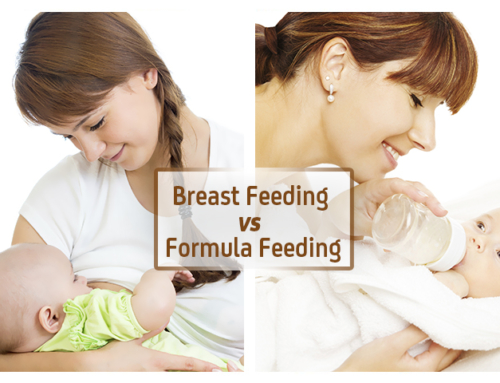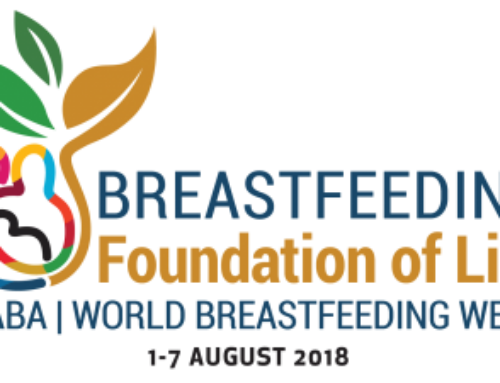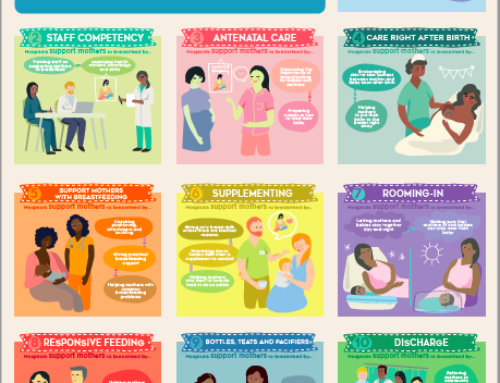 One of the questions that people have when they hear of the relationships between breastfeeding and intelligence or cognitive function is, “How could that happen?” Ignoring that there’s tons we don’t know about breastmilk (which is why we have wonderful researchers like Dr. Katie Hinde making a living out of studying it), I think people have such a lack of faith in natural human biology and development that they believe that of course people can create things just as good as nature. Our lack of respect for nature/evolution (or God if that’s your view) and the reasons behind why we are the way we are means our society has often ignored biological realities.
One of the questions that people have when they hear of the relationships between breastfeeding and intelligence or cognitive function is, “How could that happen?” Ignoring that there’s tons we don’t know about breastmilk (which is why we have wonderful researchers like Dr. Katie Hinde making a living out of studying it), I think people have such a lack of faith in natural human biology and development that they believe that of course people can create things just as good as nature. Our lack of respect for nature/evolution (or God if that’s your view) and the reasons behind why we are the way we are means our society has often ignored biological realities.
Now, the link between breastfeeding and intelligence has been touted as equivocal in the media today and by formula advocates. The problem, as I see it, is not that there isn’t a relationship between them (I’ll get to more on this in a moment), but rather that intelligence isn’t predicted or influenced by only one thing (i.e., feeding method). It’s a multi-faceted construct encompassing many different types of intelligence, and we already know of many different variables that influence these types of intelligence outside of infant feeding methods, including genetic contributions
Although determining a truly causal link is impossible because you can’t randomly assign people to breastfeed or not, or dictate the duration of breastfeeding, there are ways to get close and they all support the link between breastfeeding and (normal) neural development. One amazing longitudinal study examined the role of breastfeeding support and education and found a significant contribution of breastfeeding on various outcomes, including cognitive abilities and intelligence[5]. The other way to do this is to look at the mechanisms by which we would expect breastfeeding to influence neural development (or rather, how not breastfeeding alters what would be biologically normal development, but the research never really speaks of it this way). There has been some research on adolescents which has found greater white matter, sub-cortical gray matter volume, and parietal lobe cortical thickness in those who had been breastfed as infants[6][7][8] (these factors are all associated with IQ and cognitive functioning). However, it has been unclear when this difference emerges and how it relates to behavioural measures.
Enter Doeni and colleagues[9] who published a paper late last year in NeuroImage, a journal dedicated to neuroscience, looking at brain development in children based on breastfeeding status and breastfeeding duration. The researchers examined white matter volume as a proxy of myelination, a necessary element of brain development which enables rapid transmission of electrical signals between neurons and is associated with greater cognitive functioning, in 133 children aged 10 months to 4 years. What did they find?
In short, children who were exclusively breastfed for 3 months showed greater white matter volume in various areas of the brain that are later-developing (after 2.2 years of age) than children either mixed fed or exclusively formula-fed. Notably there were also significant differences in the groups in receptive language and visual reception, with children who were exclusively breastfed showing the greatest performance (and no differences between the mixed feeding and formula-feeding groups).
Perhaps even more notable, when comparisons were made based on duration of breastfeeding only in the exclusively breastfed for 3 months group (> 15 months, average 19 months, versus < 12 months, average 7 months) the results were even more stark. The white matter in 9 brain regions associated with cognitive ability was 21-30% greater in “extended” breastfed children versus those who were breastfed for a shorter duration. Furthermore, each behavioral test score was significant (across all ages, not just in the older group of children 2.2 years or older), with “extended” breastfeeders outperforming those of a short breastfeeding duration on gross motor skills, fine motor skills, receptive language, expressive language, and visual reception.
The mechanism behind breastmilk’s influence on neural development is hypothesized to be long-chain fatty acids (specifically docosahexaenoic, DHA, and arachidonic, AA, acids). These fatty acids are known to comprise 20% of the fatty acid content of the brain are known to contribute to neuronal growth, repair, and myelination. Though the researchers could not make causal conclusions, they are clear that their findings are in line with both the hypothesized mechanisms and previous imaging and behavioural results and conclude by saying,
“Indeed, the results herein lend further supports to the WHO recommendation that breastfeeding be continued up to 2 years of age and beyond. “
I would like to add that my own two final thoughts:
1. Even in this piece, the idea is that breastfeeding “benefits” brain development (why I’ve written it in the same way – to avoid people reading this piece then the original and being confused), but in reality what we’re seeing is normal human brain development because breastfeeding is the biological norm. These results should really speak about the influence the use of formula has on inhibiting normal brain development. I know many mothers and families who choose to use formula get upset when things are discussed as such. I’m sorry BUT this is what research is showing us. As mentioned at the start, using formula doesn’t dictate your child’s IQ or cognitive ability because it is a multi-faceted construct, but to deny that it is not biologically “normal” and that there are effects (even if they are benign) is only serving to hide the truth from people who want to consider it in making an informed choice. Formula-feed if you like, and be thankful it’s there when it’s absolutely needed, but also accept that it is different than breastfeeding and thus biologically not what is expected for human development.
2. I can’t possibly say what I did above without adding this final, possibly most important point, and it’s one the authors briefly touch upon at the end: The problems facing many mothers today when it comes to trying to breastfeed. This can never be underestimated and is something we must figure out how to fix if we want to give all mothers the chance to breastfeed if they so choose. When it comes to breastfeeding, I think there is nothing worse than hearing of moms who wanted to breastfeed – and breastfeed exclusively – who came up against the various booby traps that prematurely end far too many breastfeeding relationships. We cannot expect these moms alone to make a difference and it’s up to all of us to support mothers who wish to breastfeed and fight against the systemic problems that face far too many mother-infant dyads, regardless of your own choice in how to feed your own child. After all, shouldn’t every mother have a real choice in how to feed her baby?
[We all know that one of the largest impediments to breastfeeding in the USA is the abysmal maternity leave policies which influence women’s ability to breastfeed. If you would like to send a letter to your representative including science on the benefits of breastfeeding and asking for maternity leaves in line with other developed nations, you can click here to download a letter and look up the mailing address of your specific representative.]






Love your analysis of various scientific articles. It helps statistics-idiots like myself better comprehend the results of each study.
I was wondering though if any studies have been done to study the effects of infants/toddlers feeding from the breast instead of being fed breastmilk via bottles, i.e. If latching directly to the breast has any effect on the child.
It would have an effect on the immunology aspect as the way the mother’s body knows to add antibodies to the milk is by the latch. Other than that, I don’t know – I’d have to look it up 🙂
I’m interested in this too. My son was ebf until 6 months old when we started non-milk foods. I went back to work when he was 7 months old. Now he does a combination of pumped milk during the day and nursing when I’m home. I would be curious to know what, if any, effect this might have on him. I assume he still gets some immunological benefit since we do nurse part time, but not sure if it’s equivalent?
I’m a little confused – are you using formula at all? Because exclusive breastfeeding can include exclusive pumping.
Thank you for this article. It is very interesting.
I have a question related to this. My first son was breastfeed until the age of 4. Up until about 2.5 he fed very frequently and so I assume got large quantities of breastmilk. My second son is now 15 months. He is quite uninterested in breastfeeding so I only feed him 3 times per day, always on my initiative. I am concerned that he is not getting the same benefits as he is most likely taking in a much smaller volume of milk? Should I be trying to feed him more often? Thanks!
It actually may reflect a difference in efficiency in breastfeeding so you can’t assume one got more because he fed more 🙂 If you’re following his lead and he’s still nursing and your supply isn’t dropping, he’s doing great 🙂
Thanks for tour wonderfull explanatioms. I think in this matter you should not forget the impact of medical interventions during child birth. They are a big impact on mothers ability to exclusively breastfeed and to keep breastfeeding. There are often big problems for moms who didn’t have a natural birth in starting and maintaining the feeds.
YES! Absolutely that needs to be considered too though I find that support systems in place after can really help with that.
It is wonderful to see more objective studies of the influence of breast milk on infant brain development. But I would be hesitant to attribute their findings on DHA/AA (or one any one particular component in breast milk). You wrote: “The mechanism behind breastmilk’s influence on neural development is hypothesized to be long-chain fatty acids (specifically docosahexaenoic, DHA, and arachidonic, AA, acids). These fatty acids are known to comprise 20% of the fatty acid content of the brain are known to contribute to neuronal growth, repair, and myelination. Though the researchers could not make causal conclusions, they are clear that their findings are in line with both the hypothesized mechanisms and previous imaging and behavioural results.” Without any measurements by Deoni et al. on breast milk composition, it is not possible to attribute the differences they observed to a particular milk component. Additionally, we now add in both DHA and AA to formula in concentrations that may actually exceed those present in breast milk. This does not mean that DHA and (probably to a lesser extent) AA are not integral for infant neurodevelopment. They most certainly are. But their results suggest that increased white matter results from some other factor in breast milk that is not in formula, or more likely the combination of factors present in breast milk of which one may be DHA content. I would be very interested to see a study that looks only at breastfeeding infants and white matter development that integrates measures of milk composition – just what accounts for the variation?
Also, can you please pass on the references for the statement you made to a commenter above, regarding the way mothers know to add antibodies to milk is the latch. If my email is made available to you when I comment, you can feel free to share refs that way too. Thank you.
Here’s the breastmilk nipple info: Vickers MC. Breast milk production: The anatomy of breastfeeding. Accessed from <http://www.breastfeed.com/how-to/basics/breast-milk-production> on April 27, 2011.
And here is a piece on the DHA and AA information via another study looking at autism and breastfeeding – it seems that just adding it to formula does not have the same effect as it’s concentration or perhaps bioavailability in breastmilk: https://gku.flm.mybluehost.me/evolutionaryparenting.com/autism-and-breastfeeding/
Excellent redux!
I’m also curious about the fatty acid hypothesis. If fatty acids are responsible for breastfed babies displaying more white matter, wouldn’t we see the same thing to a lesser extent in mixed fed babies. Hypothetically, they should be receiving more fatty acids than purely formula fed babies.
The fatty acid hypothesis makes sense for extended breastfeeders, though. A 2005 study by Mandel (sp?) Shows that extended breastfeeders make fattier milk.